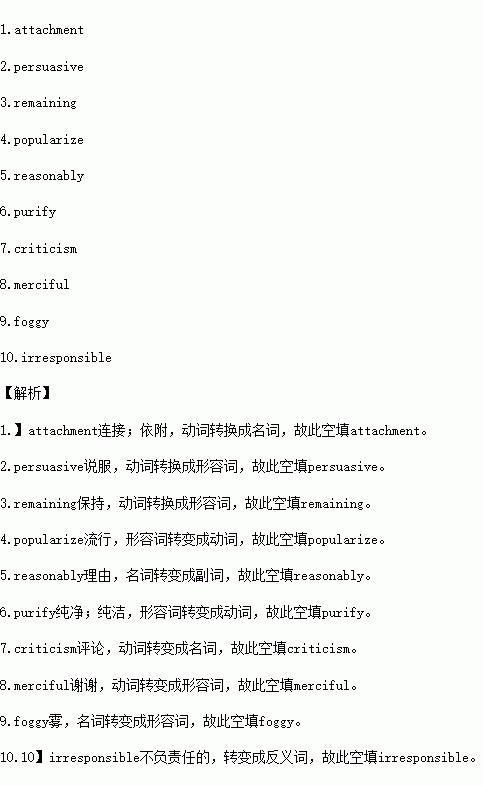题目内容
第一节 词性转换
1.attach→ n. __________________
2.persuade→ adj._________________
3.remain→adj. _________________
4.popular → v.__________________
5.reason→adv._________________
6.pure→v. _____________________
7.criticise→n.__________________
8.mercy→adj.____________________
9.fog→adj.___________________
10.responsible→opp_______________
练习册系列答案
相关题目

